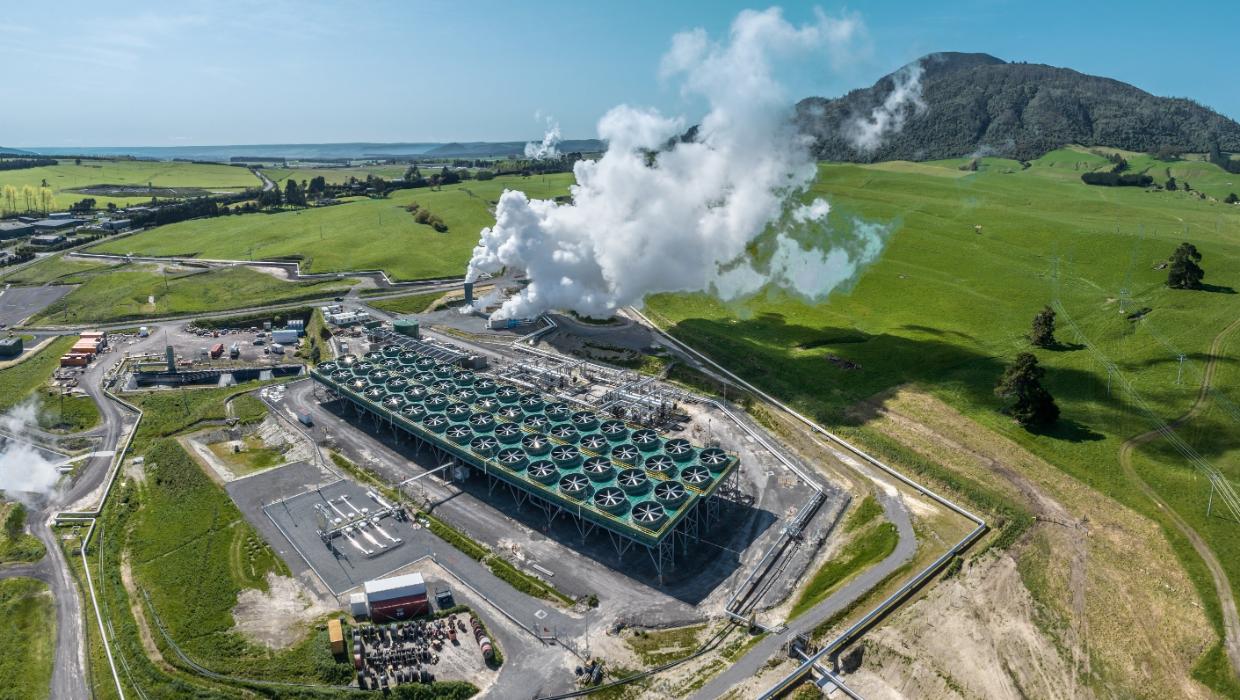Business
Taranaki Firms Transition to Growing Geothermal Energy Sector

Industrial companies based in Taranaki are diversifying their operations by expanding into the geothermal energy sector in Taupō. This shift follows a significant decline in oil and gas production in the region, with gas output decreasing by 20% and oil production down by 14% in 2024. Firms such as Dialog Fitzroy, JLE Electrical, Entec, and Warner Construction are leading this transition as they seek new avenues for growth.
The push towards geothermal energy comes at a time when the oil and gas industry is contracting. According to the Ministry of Business, Innovation and Employment, geothermal energy generated approximately 20% of New Zealand’s electricity in 2025, a substantial increase from 7% in 2000. This upward trend signals a shift in the energy landscape, prompting local companies to adapt their business models.
Dialog Fitzroy, previously known as Fitzroy Engineering, is actively pursuing broader energy infrastructure projects. Managing Director Kerry Williamson emphasized the company’s recognition of the decline in traditional fossil fuels, stating, “We recognise the decline in oil and gas and pushed into new sectors. Geothermal is just one avenue.” The firm has established offices across New Zealand, including in Taupō and Wellington, as well as in Brisbane, to be closer to major project sites.
Williamson described the success of Taranaki companies in adapting to new markets as indicative of an “adapt or perish” mentality. “We’re seeing companies succeed in those markets and that’s a great measure of what’s been built here,” he added.
Since its inception in Taupō in 2007, JLE Electrical has expanded its presence in the region. Chief Executive Michael Pigott pivoted the business towards power generation and water markets after recognizing the decline in oil and gas production following the 2018 offshore exploration ban. “We have a long-term commitment with power generation projects, and the type of work is very similar – heavy industrial work, which we really like,” he noted.
The company has also seen growth in other sectors, such as dairy, with a branch in Hāwera, and has been active in the Papua New Guinea mining sector since 2016. Pigott remains optimistic about opportunities in Taranaki, despite the challenges facing the traditional energy sector. “It’s not what it was before, but infrastructure will need to be built here,” he asserted.
The evolution in business strategies is echoed by Entec. Chief Executive Rob Evans remarked that the company’s revenue has shifted dramatically over the last eight years, moving from 80% reliance on oil and gas to around 25% coming from renewable energy sources. Entec has had a presence in the Taupō area since the construction of the Tauhara power station in 2021 and plans to participate in the Te Mihi plant project next year.
In contrast, Warner Construction has been involved in projects in Taupō for nearly 15 years. Managing Director Adam Warner highlighted the company’s growth alongside the region’s renewable energy investments. “While oil and gas work in Taranaki remains an important part of our business, the geothermal and broader energy transition projects in Taupō and the central North Island have become a significant growth area,” he said.
Kelvin Wright, Chief Executive of Te Puna Umanga Venture Taranaki, emphasized the region’s strengths in engineering and technology, positioning it as a leader in New Zealand’s industrial future. He acknowledged the current economic challenges but noted that local businesses are responding with determination, adapting their skills to capture new market opportunities. “Supporting industry to expand into these opportunities is essential to keeping the highly skilled workforce engaged and maintaining regional capability,” he stated.
Wright concluded that the region is actively seeking new industrial investment, both locally and internationally, to enhance growth and scale for the local industry. The ongoing evolution of Taranaki firms into the geothermal sector underscores a broader shift in New Zealand’s energy landscape, as businesses adapt to changing market demands and seek sustainable growth solutions.
-

 World4 months ago
World4 months agoTest Your Knowledge: Take the Herald’s Afternoon Quiz Today
-

 Sports4 months ago
Sports4 months agoPM Faces Backlash from Fans During Netball Trophy Ceremony
-

 Lifestyle4 months ago
Lifestyle4 months agoDunedin Designers Win Top Award at Hokonui Fashion Event
-

 Sports4 months ago
Sports4 months agoLiam Lawson Launches New Era for Racing Bulls with Strong Start
-

 Lifestyle4 months ago
Lifestyle4 months agoDisney Fan Reveals Dress Code Tips for Park Visitors
-

 World4 months ago
World4 months agoCoalition Forms to Preserve Māori Wards in Hawke’s Bay
-

 Health4 months ago
Health4 months agoWalking Faster Offers Major Health Benefits for Older Adults
-

 Entertainment4 months ago
Entertainment4 months agoExperience the Excitement of ‘Chief of War’ in Oʻahu
-

 Politics4 months ago
Politics4 months agoScots Rally with Humor and Music to Protest Trump’s Visit
-

 Top Stories4 months ago
Top Stories4 months agoUK and India Finalize Trade Deal to Boost Economic Ties
-

 World4 months ago
World4 months agoHuntly Begins Water Pipe Flushing to Resolve Brown Water Issue
-

 Science4 months ago
Science4 months agoNew Interactive Map Reveals Wairarapa Valley’s Geological Secrets









